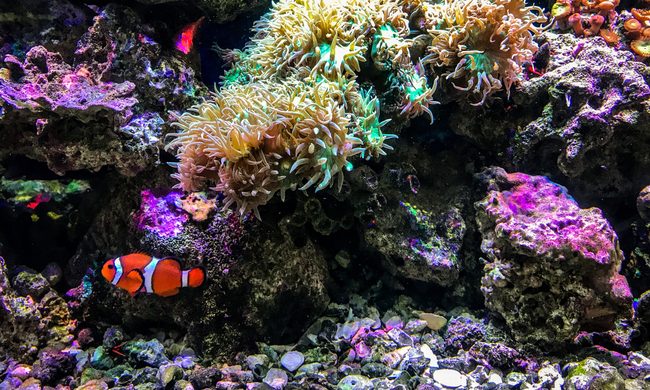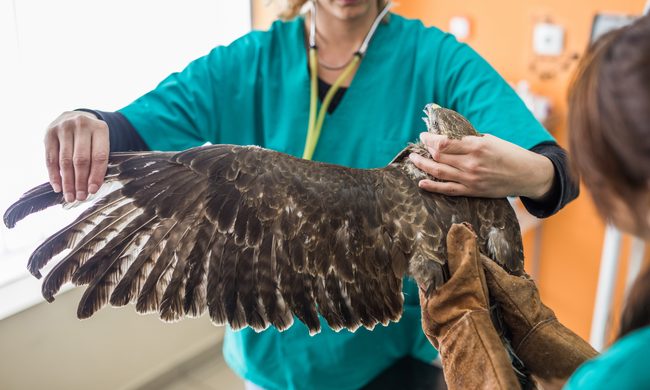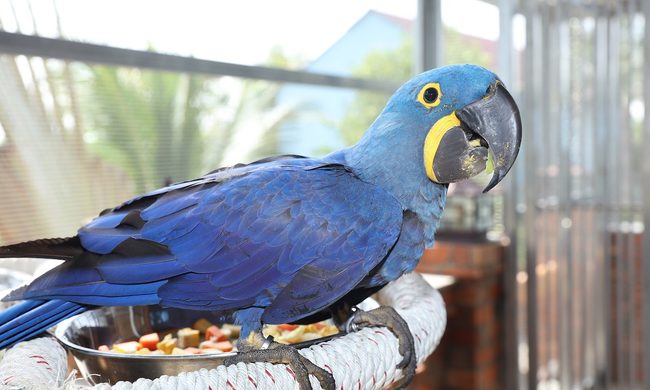Apartment living might rule out owning a Great Dane, but you can still have all the companionship of a pet in your home. Many birds love to spend time and play games with their human but hang out the rest of the time in their cage that will fit perfectly into your one-bedroom. Your apartment dweller will take well to his home and to occasionally exploring yours. When selecting the right bird for a smaller spot or a city location, you’ll want to think quiet. Some species are very chatty and can make noise at all hours, and you don’t want him waking up the neighbors. You’ll also want to avoid birds that speak or that need a lot of space. Here are the best birds for apartments to fill your small space with love and affection.
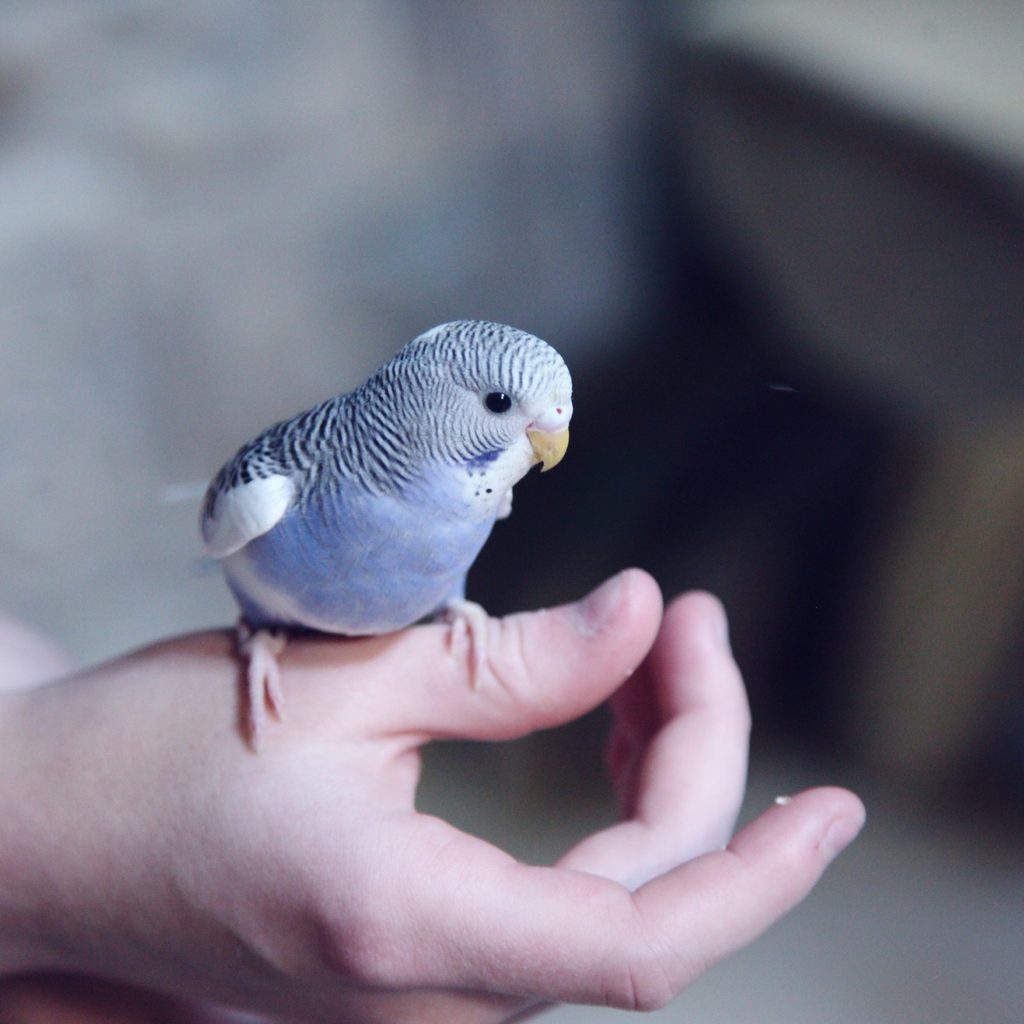
Parakeet
These little guys thrive in an apartment, even a really compact one. They need only a small cage, approximately 18 by 18 by 24 inches, and stay on the quieter side. If your birds are hand trained, they’ll ride along with you in the apartment. Of course, you’ll need to bird-proof the place first. Your parakeet loves to play with toys and will learn a few tricks if you take the time to teach him. Start with basics like getting him to perch on command and work up to waving and cheeping. That will keep him entertained no matter how tight your space is.
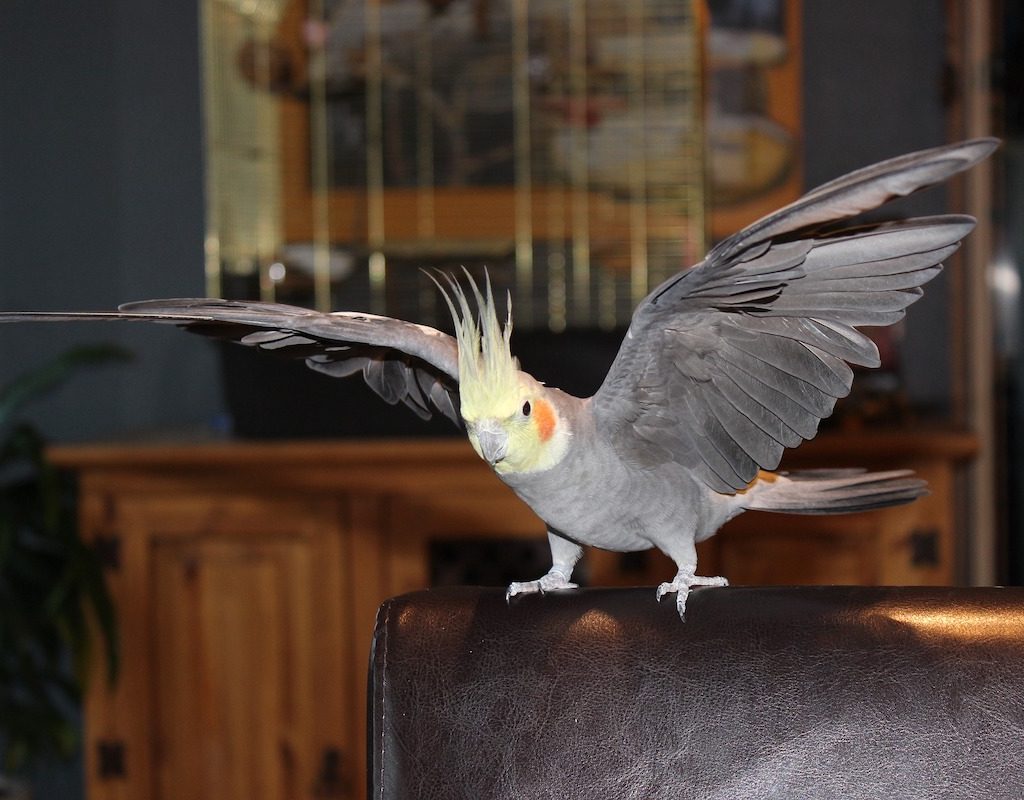
Cockatiel
Slightly bigger than a budgie, your cockatiel will need a mildly roomier cage. But more importantly, they like to come out and play daily. If you’re thinking a cockatiel will fit well into your apartment, make sure there’s a good spot for her to fly around. It’s usually best to have a bird-proofed room for her, but she can also roam if you’re watching her closely. Remember to close bathroom doors and turn off all fans when she’s out. You can set up a playscape in her cage as well to keep her entertained when you aren’t in the mood to mind her.
Finch
These birds will probably be the quietest of the bunch, but there’s a catch: They need a large cage to fly around in. Unlike the parakeet or cockatiel, your finch doesn’t want to interact with you much, but she does need playmates. It’s best to keep a couple of finches together, and some finches come in same-sex pairs to prevent baby finches from arriving and taking over your apartment. A place with high ceilings makes a good area to put up your finch, but be mindful of drafts. Finches like calm, regulated air and are highly sensitive to smoke and steam. Lastly, finches are hungry all the time. You’ll need to pay special attention to keeping the cage full of food for them to happily munch throughout the day.
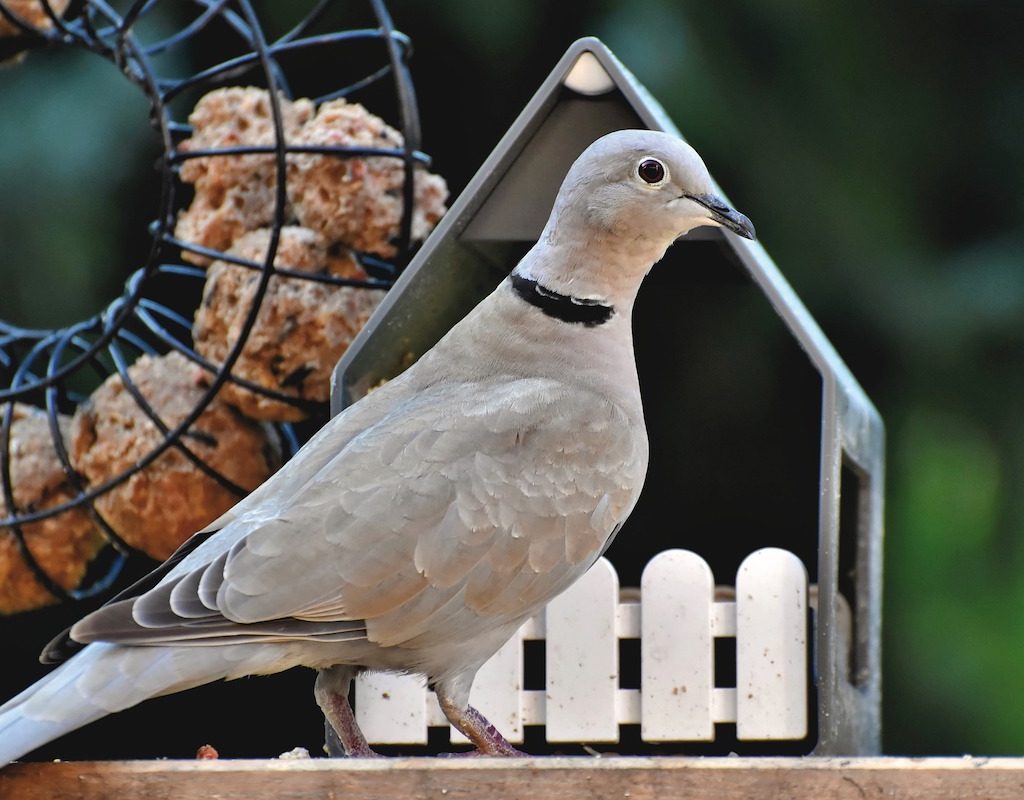
Dove
These handsome birds are known for their coo, and they do it a lot. During most waking hours, you’ll hear the gentle lull of your bird’s chatter. However, their vocalizations tend to be especially quiet and can easily be muted by a closed door. While your new bird might take seed from you occasionally, most doves prefer the company of their own species, making this a great bird for anyone with a demanding schedule who has time to interact with their pet only once a day or so. Doves require a particular type of cage as they won’t perch on the bars in the sides. Instead, get a wide cage with numerous perches for them to fly back and forth.
Parrotlet
As the name suggests, these little parrots will make a perfect companion for your smaller-than-average home. While they can learn to speak, their small size means all their sounds come in a quiet decibel, and they’re generally birds of few words. This wee yet mighty bird loves attention and play. Set up his cage to include a number of toys and especially things that he can shred. Unlike the dove, your pocket parrot requires frequent handling but will make it worth your while with affection in return.
Your bird will bring fun and (hopefully, quiet) singing to your apartment. While these pets don’t need walks or belly rubs, they still require some attention, especially during feeding times. Cages will get smelly quickly in an apartment as well, so ensure that you’re ready to take on frequent cleanings before bringing a bird home.


